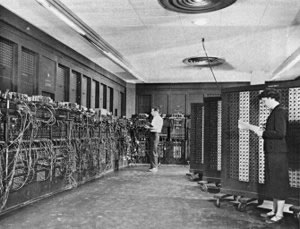How to Automate Your Personal Finances
For the past few months, I've been moving toward a system of paperless personal finance. In this post from Paul Lussier, he explains his own automated system.
 Lately J.D. has been talking a lot about automating his finances. In my world (that of high-tech, software, and large computer systems), we strive to automate as much as possible. By doing this, we hope to minimize error by reducing human interaction, leveraging the power of the computer for what it's good at, leveraging the power of people for what we're good at.
Lately J.D. has been talking a lot about automating his finances. In my world (that of high-tech, software, and large computer systems), we strive to automate as much as possible. By doing this, we hope to minimize error by reducing human interaction, leveraging the power of the computer for what it's good at, leveraging the power of people for what we're good at.
In other words, we emphasize the strengths of both the computer and the human. Computers are really good at doing the tedious, mind-numbing, soul-sucking repetitive tasks which humans hate. Humans are far better at reasoning, logic, and creative thinking than computers.
What to consider when opening your first brokerage account
This article was written by Dong, who writes about personal economy at Ask Dong.
 Who can forget their first time? I certainly can't. I was 22 and fresh out of school. The NASDAQ was around 4000, and young turks like myself were getting jobs that we had no business holding. The times were good. Even if I couldn't work for a dot-com, there was no reason for me not to invest in them. The world was my oyster.
Who can forget their first time? I certainly can't. I was 22 and fresh out of school. The NASDAQ was around 4000, and young turks like myself were getting jobs that we had no business holding. The times were good. Even if I couldn't work for a dot-com, there was no reason for me not to invest in them. The world was my oyster.
I opened my first real brokerage account with only one in thing in mind — I wanted the cheapest trades possible. At the time, Datek offered the best price at $9.99 a trade. This wasn't my first account, but it was my first account as an adult. Continue reading...
How I became a millionaire while working in my pajamas
This article was written by the Millionaire Mommy Next Door. At her blog, MMND shares her recipe for success, happiness, and financial freedom. This piece originally appeared on her site in a slightly different format.
When my husband and I married (at age 23), I was working as an office assistant at a veterinary hospital earning $7.50 per hour. Unsatisfied with my low wages, I brainstormed ways to generate extra income.
Going to the Dogs
I had worked as a volunteer dog-trainer for the Humane Society since age 14, so I combined my experience and youthful exuberance into a part-time side business. I offered dog-training classes and taught them in the veterinary hospital's backyard. It was a win-win situation: my employers had a new service to offer their clients, and I was self-employed, with very low operating expenses.
A brief introduction to insurance
This article was written by Aaron Pinkston. He used to help other insurance agents understand insurance. Now he prefers dealing directly with the public.

A quick note: I am not giving out tax or legal advice, and you shouldn't think I am. The advice I have to offer through this site is generic only because the audience is so diverse. If you have specific questions, you should consult a financial planner or insurance specialist.
The pros and cons of an interest-only mortgage
This article was written by Mrs. Micah of Finance and Life. Look for a related post later today.
 Getting an interest-only mortgage can seem like a great idea when you're trying to buy a house and can't afford a down payment (or if you have bad credit). Earlier this week, I read the story of a couple who are celebrating home-ownership under just such a situation. But while they're happy, odds are that this is actually a disaster waiting to happen.
Getting an interest-only mortgage can seem like a great idea when you're trying to buy a house and can't afford a down payment (or if you have bad credit). Earlier this week, I read the story of a couple who are celebrating home-ownership under just such a situation. But while they're happy, odds are that this is actually a disaster waiting to happen.
The Pros
There are two reasons an interest-only mortgage might work out for you:
The Pastoral Lifestyle: A Life Removed from Day-to-Day Concerns
A few months ago, J.D. wrote an interesting review of Voluntary Simplicity, a book dedicated to living a stress-free life. What I found most interesting was not the review, but J.D.'s introduction:
For years, one of my goals has been to achieve a "pastoral lifestyle". This amuses my friends, but it's true. By "pastoral lifestyle" I mean that I want to create for myself a life that flows at a slower pace, a life removed from the concerns of the day-to-day world.
This paragraph really made me think. Who exactly lives a "pastoral lifestyle"? Is it someone rich who doesn't need to worry about money? Or is it someone who doesn't care about money, but who doesn't have any worries?
Why are weddings so expensive? How we cut costs, and how you can too
Think you need to spend a fortune to tie the knot? It's just not so. Kris and I got hitched for a couple grand in 1993. In this post from JerichoHill, he explains how he kept costs down for his wedding last summer.
Weddings are expensive affairs. Couples often spend tens of thousands of dollars for an event that lasts only a day or two. I know, I know — the memories last a lifetime. But that's the catch-phrase of the industry that's sprung up around this occasion. In economics, this is called conspicuous consumption.
Ramit at I Will Teach You to Be Rich recently wrote an article about the cost of weddings. On average, a wedding costs $28,000. That's more than half what the typical American household earns in an entire year! Continue reading...
Get More Bang for Your Buck by Using Coupons and Sales Wisely
This article was written by Amanda, a Colorado tech writer and an activist for children with congenital heart disease.

One of my recent accomplishments was purchasing fall clothing for my children. I knew that they needed new clothes, and that the cost would exceed our discretionary spending. In our budget, we set aside savings for clothing. I had a budget of $125 for each of my two kids. Though they didn't need new clothes in August, I knew that was when I'd be able to find good sales and the best selection, so I planned ahead.
A Rough Guide to Repaying Student Loans
There are really two things to know about student loans: How to get them, and what to do when you have to start paying them back. I'm going to write about the latter, as I am more experienced with that aspect. It seems everyone can figure out how to get student loans (whether or not they are getting the best deal), but paying them back can be more confusing.
Most federal student loans come with a grace period of six months during which you are not required to make payments. That means if you graduated in May of this year, your grace period is coming to a close and you have some decisions to make.
What do I owe?
The first step is to find out how much you owe and to whom. Your financial aid office can help you with this, as can this site.
An Expert Tip for Saving on Prescription Drugs
This article was written by Shiva, who wrote to offer some advice on how to shop for prescription medicine: don't assume that the new new stuff is better!
 I am a general internist — a physician who provides primary care to adult patients — and am on the faculty of a medical school, where I teach medical students and residents. One of my interests is the excess marketing and use of expensive yet marginally effective prescription drugs.
I am a general internist — a physician who provides primary care to adult patients — and am on the faculty of a medical school, where I teach medical students and residents. One of my interests is the excess marketing and use of expensive yet marginally effective prescription drugs.
I have found in clinical practice that the most effective medications tend to actually be "tried and true" ones approved over ten years ago with thousands of patient years of post marketing safety and efficacy data available. Rarely is the latest the greatest.
Unfo

